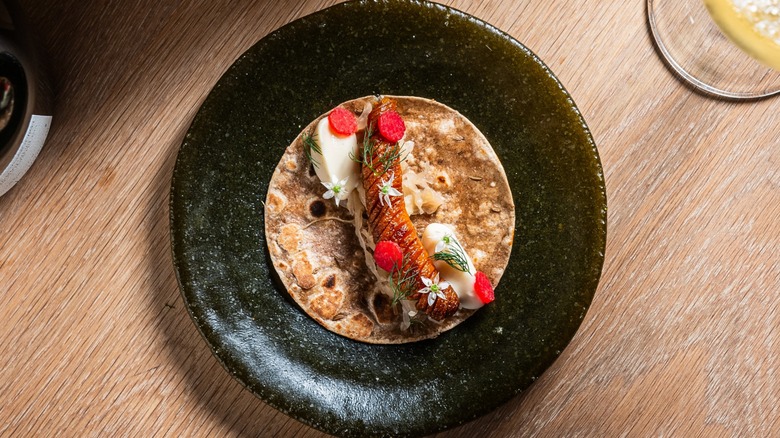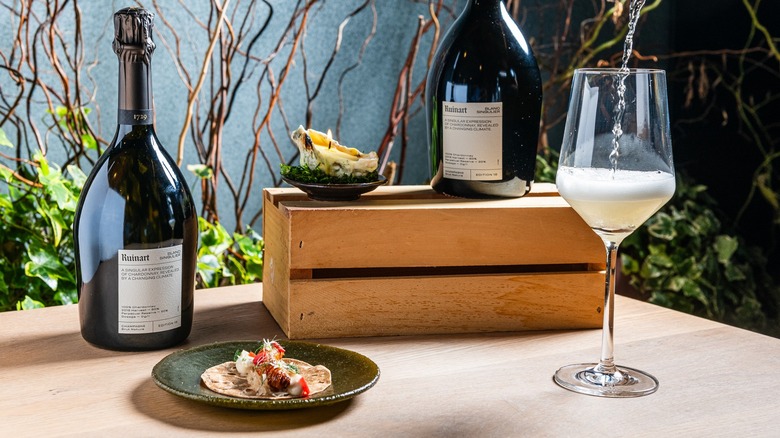How Michelin Restaurant Oyster Oyster Turns Wine Bottles Into Dinner Plates
After spending over two decades in restaurants, environmentalist and chef Rob Rubba has committed himself to looking for ways to reduce waste in his kitchen. Rubba's efforts were recognized by the James Beard Foundation in 2023, and his vegetarian-focused Washington, D.C., restaurant, Oyster Oyster, has even bagged a Michelin star. At Oyster Oyster, dishes are cooked on induction stoves, reclaimed wood furbishes the green-washed setting — and all that's before diners spoon into dishes served on upcycled plates. Oyster Oyster's wine menu is filled with organic and biodynamic wines, and the emptied wine bottles are then converted into dishware.
Material Things Studio takes bottles from Rubba's restaurant and makes plates and dishes that can be used during meal service. As Oyster Oyster representatives explained to Tasting Table, the glass is broken down into sand before local artisans create pieces that can be returned to the restaurant where dishes like roasted carrots, fermented cabbage, and smoked tofu can be plated on them. "Over a few thousand bottles have been used in this process, and the potential of what other materials and products can become from this idea is what keeps driving me," Rubba told Tasting Table.
When creativity and sustainability merge
Chef Rob Rubba invested $10,000 to buy a glass crusher to facilitate the breaking down of his restaurant's bottles, and while it took some experimentation to perfect the plate designs, the creative collaboration paid off. "We were so excited when Chef Rob approached us about this machine and project for truly tons of reasons. We are called Material Things for a reason — we are obsessed with our materials. The opportunity to dive into a new material because of a specific and local need — presented to us by one of our most compelling clients — was a solid yes," Katie Adleworth, Owner and Partner of Material Things, told Tasting Table.
Oyster Oyster also seeks out other partners that share similar values. For example, the restaurant chooses to team up with local breweries that use ingredients native to the region and serves only draft beer to reduce waste from used bottles and cans. From sauces mixed with sunflower seeds to candles made in oyster shells filled with leftover cooking oil, Rubba is not simply talking the talk of sustainability. His quest to give second and even third lives to products and ingredients is seen in menus made from paper and wildflower seeds that can be planted to repurposed food trimmings that are used to make juices that complement served dishes. Through his actions, Rubba is showing that it is possible to lead by example, one emptied bottle at a time.

